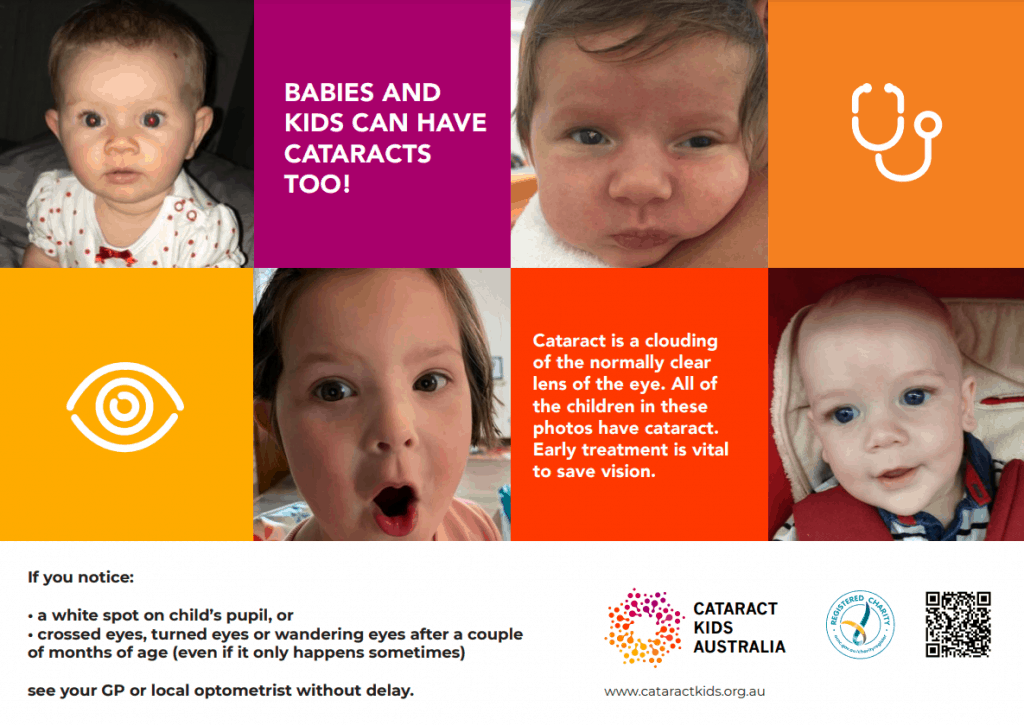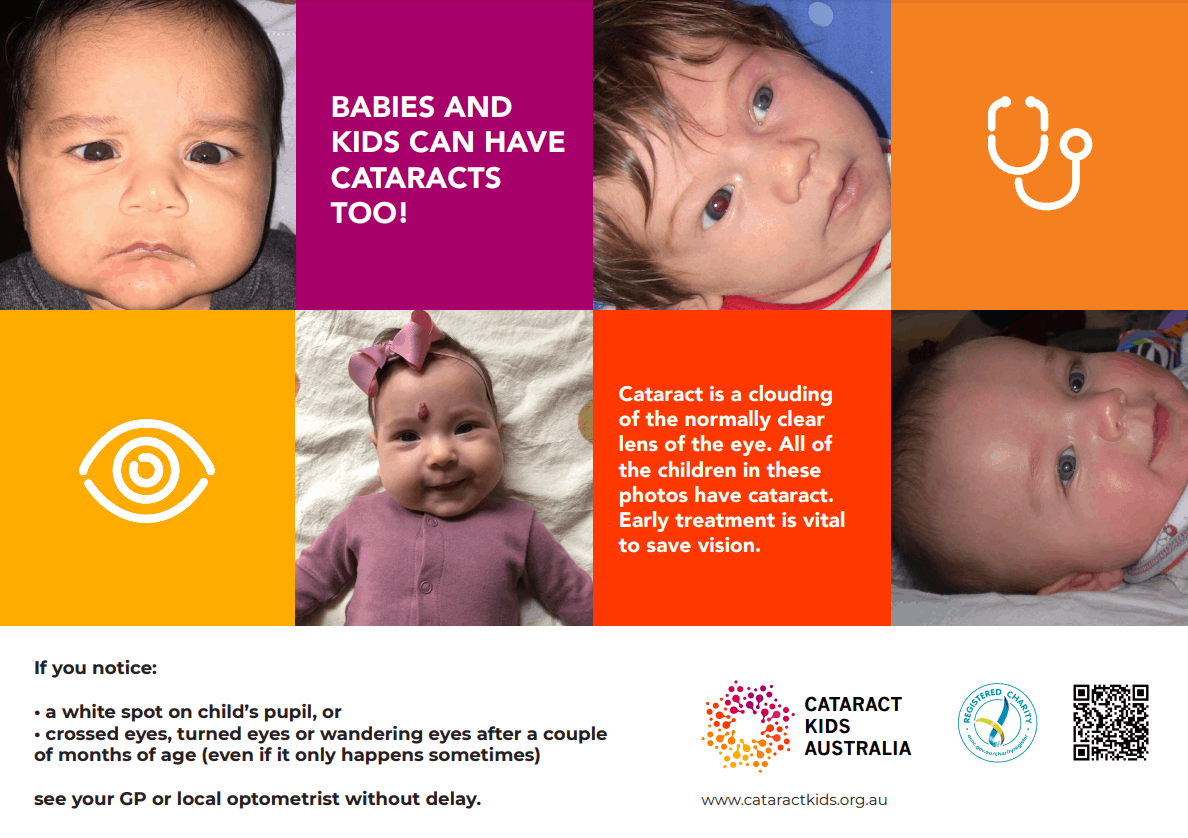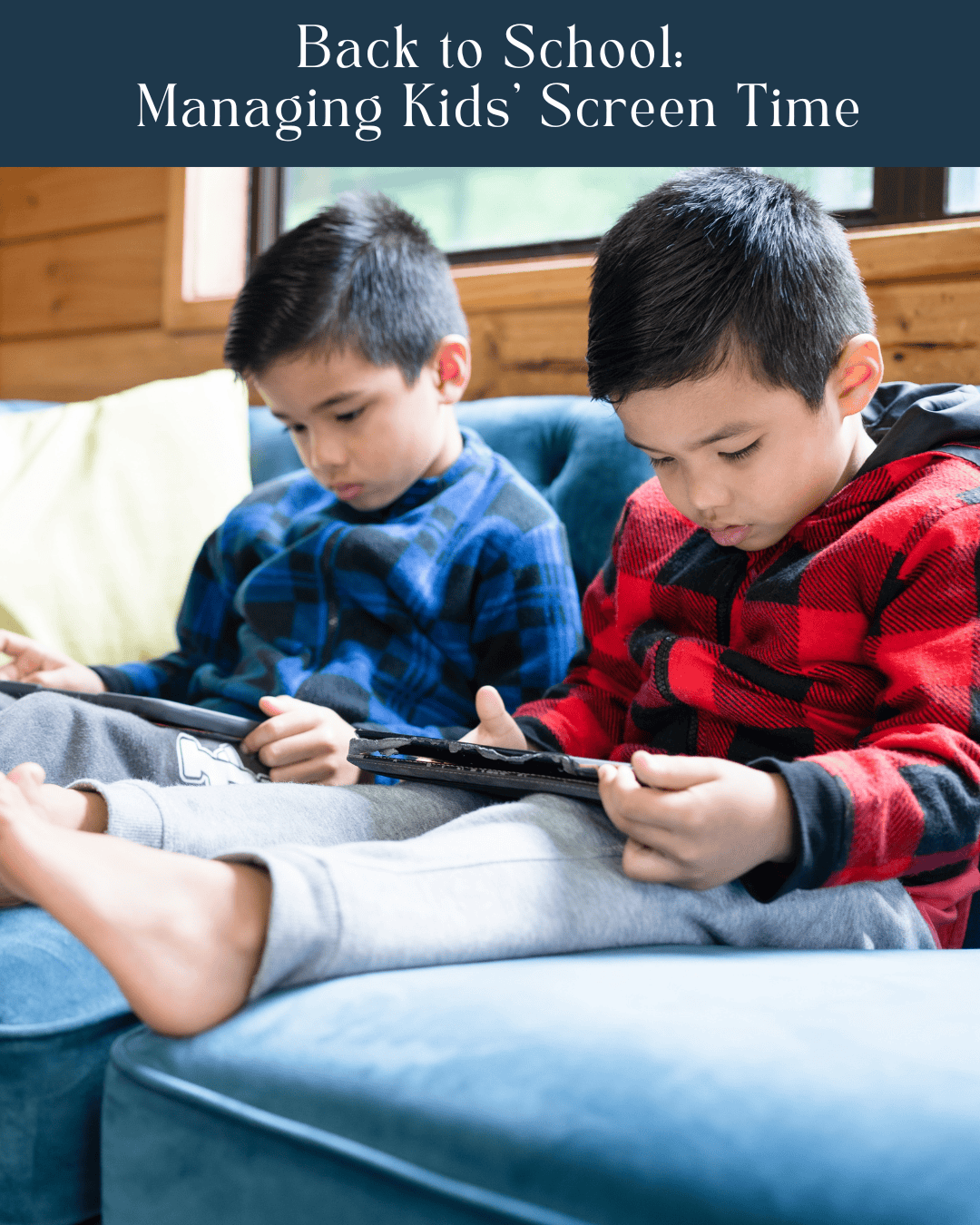Most cataracts develop with UV exposure and due to aging of the lens inside the eye, however cataracts can occur at any age and can be most devastating to babies and children who are born with a cataract or develop them when young. If not detected they can permanently and irreversibly affect the sight of these babies and children.
This month we are highlighting the work of Cataract Kids Australia which is an organisation raising awareness of congenital or childhood cataracts and offering support to the families affected by cataracts.

The Melbourne‐based head of national charity Cataract Kids Australia, Megan Prictor, has an important message to mark global Cataract Awareness Month this June: babies and children can get cataracts too. Prictor wants new parents and grandparents to know the telltale signs of vision problems in infants and children to avoid irreversible vision impairment.
Cataract is a clouding of the normally clear lens of the eye. Most people think of cataracts as a problem affecting older people. Cataract affects around 10% of the Australian population over the age of 65 years (Source). But babies can be born with cataract too, or the condition can develop in children of any age. If left untreated during this critical early period when vision is developing, cataracts can lead to irreversible loss of sight. Prictor, who established Cataract Kids Australia in 2017 after her son was born with cataracts in both eyes, wants the
families of babies and young children to know the warning signs and seek treatment early. There are two key warning signs to be aware of. One is a white spot on the pupil – the middle part of the eye that is usually black. This might be visible just by looking, or in a photograph. The other sign is when babies’ eyes are not aligned (straight) at all times or tracking faces after around 2 months of age. Prictor says “it’s a myth that a baby’s eyes normally drift or don’t line up straight until they’re a year old. This is a warning sign that should be checked out urgently by a GP or optometrist”.
Babies’ eyes are checked soon after they are born, but sometimes cataracts are missed. If parents have any concerns about their child’s eyes they should seek prompt medical advice. “The eye health professionals have told me they would rather check things out if parents are worried and rule out any problem, than discover that cataracts have been found too late to recover a baby’s vision”, says Prictor.
Cataract Kids Australia works to support babies and children affected by cataract, and their families, as well as advocating for improved research and treatment of this challenging condition. For more information visit www.cataractkids.org.au
If you have any concerns in relation to cataracts, book an appointment with one of our Optometrists.


